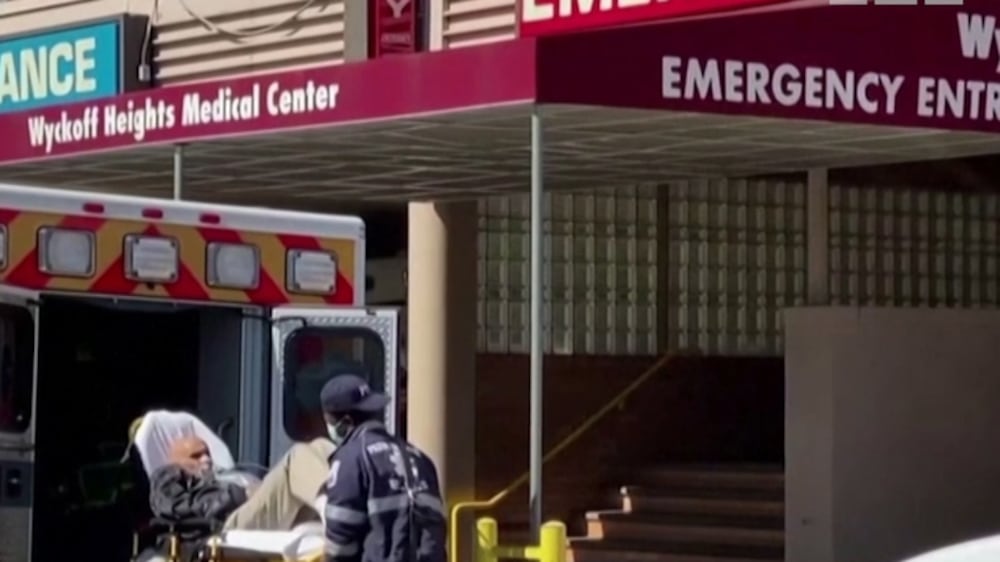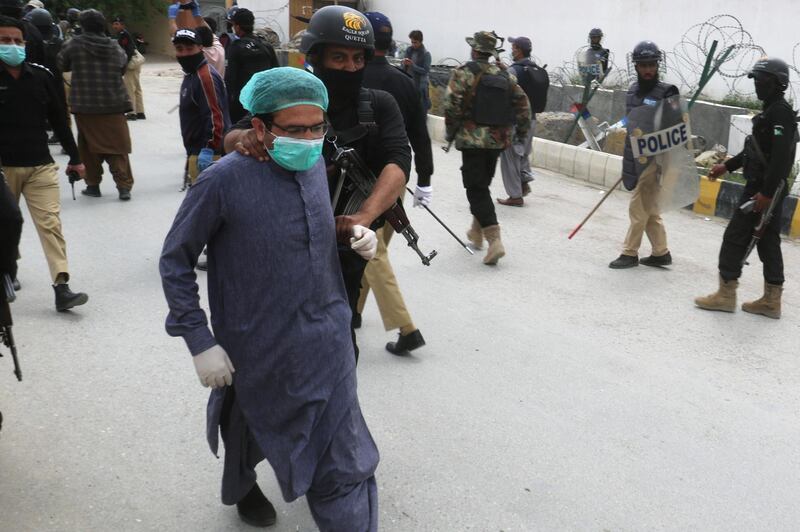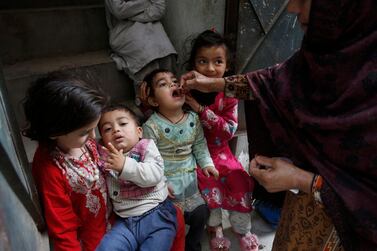Pakistan's president drew criticism from doctors after he was seen wearing a high-protection medical mask at a government meeting while those treating Covid-19 patients complain they are going without.
The availability of protective equipment (PPE) such as masks, gloves and gowns to medical staff has become a political issue as cases have begun to rise ominously in the world's sixth-most populous nation.
Covid-19 cases pass 1.5 million

Doctors claim frontline staff are being put at risk by a lack of equipment and a lack of testing.
Government officials have responded that high-specification N95 masks are only necessary for those treating patients in specialist isolation wards and that medical staff are being given all the PPE they need.
President Arif Alvi faced criticism after he was seen wearing such a mask while chairing a briefing session by the Punjab government in Lahore.
The Pakistan Medical Association later issued a statement complaining that politicians and bureaucrats were often seen wearing N95 masks during their meetings and visits, whereas health professionals were facing a shortage of these masks and other protection.
Dr Alvi responded to the criticism on Thursday, saying he had been reusing an old mask given to him in China. The strap had since broken and he was now using a regular mask, he said.
Cases of Covid-19 in Pakistan had reached more than 4,400 with 63 deaths by Thursday. A lack of testing has meant the toll is considered to be a significant underestimate of the real number of infections.
The low death rate compared to Europe had led to speculation among health officials that the virus was somehow behaving differently in Pakistan. But cases have begun to climb in recent days and Prime Minister Imran Khan warned earlier this week that the situation was likely to worsen.
"It is a misconception that this pandemic is spreading slowly in the country as the number of our deaths has been low so far and it will not spread rapidly; it will become worse in the days to come," Mr Khan told a press conference on Wednesday.
Doctors groups have reported nationwide shortages of personal protection equipment. Dozens of medics protesting over the shortages were arrested and hauled into police vans earlier this week in the city of Quetta.
Dr Salman Haseeb Chaudary, president of the Young Doctors Association in Pakistan's worst-hit province, Punjab, told The National: "Only in isolation wards are doctors given PPE, but in emergency and other wards, they are not given it."
Doctors are forced to buy their own, he said. "The quality is not up to the mark and there's very limited resources to check the quality."
He said more than 30 doctors, nurses and paramedics have tested positive in the province.
"The doctors are at the frontline and they need to protect themselves, so that they have peace of mind, good health and can treat corona patients," said Dr Qaisar Sajjad, secretary general of the Pakistan Medical Association.
Pakistan's central government has said it will take charge of the distribution of PPE to hospitals, bypassing provincial authorities, as it tackles supply delays. The army has also said it will step in to deliver supplies.
Countries across the world are struggling to meet the demand for protective equipment and prices are reported to have leapt as even the richest nations compete for stocks.
The UAE earlier this month sent 11 tonnes of medical supplies to help Pakistan tackle Covid-19. The consignment included testing kits, sanitiser and medical equipment.







